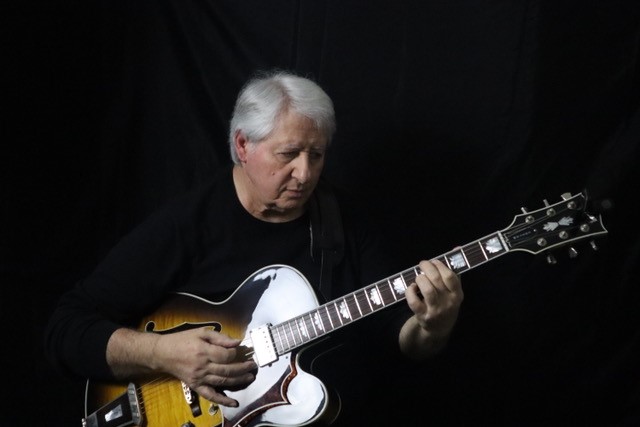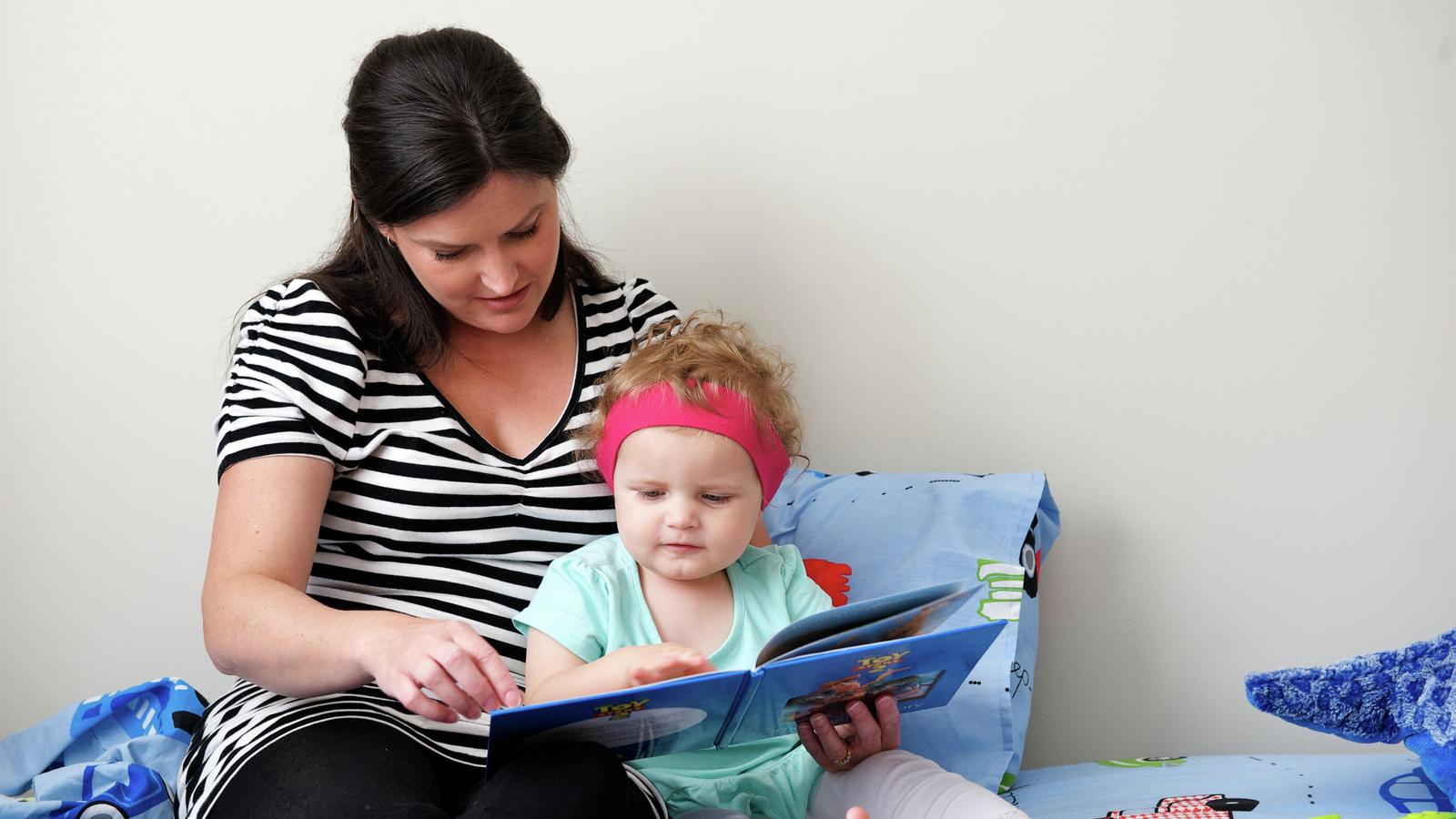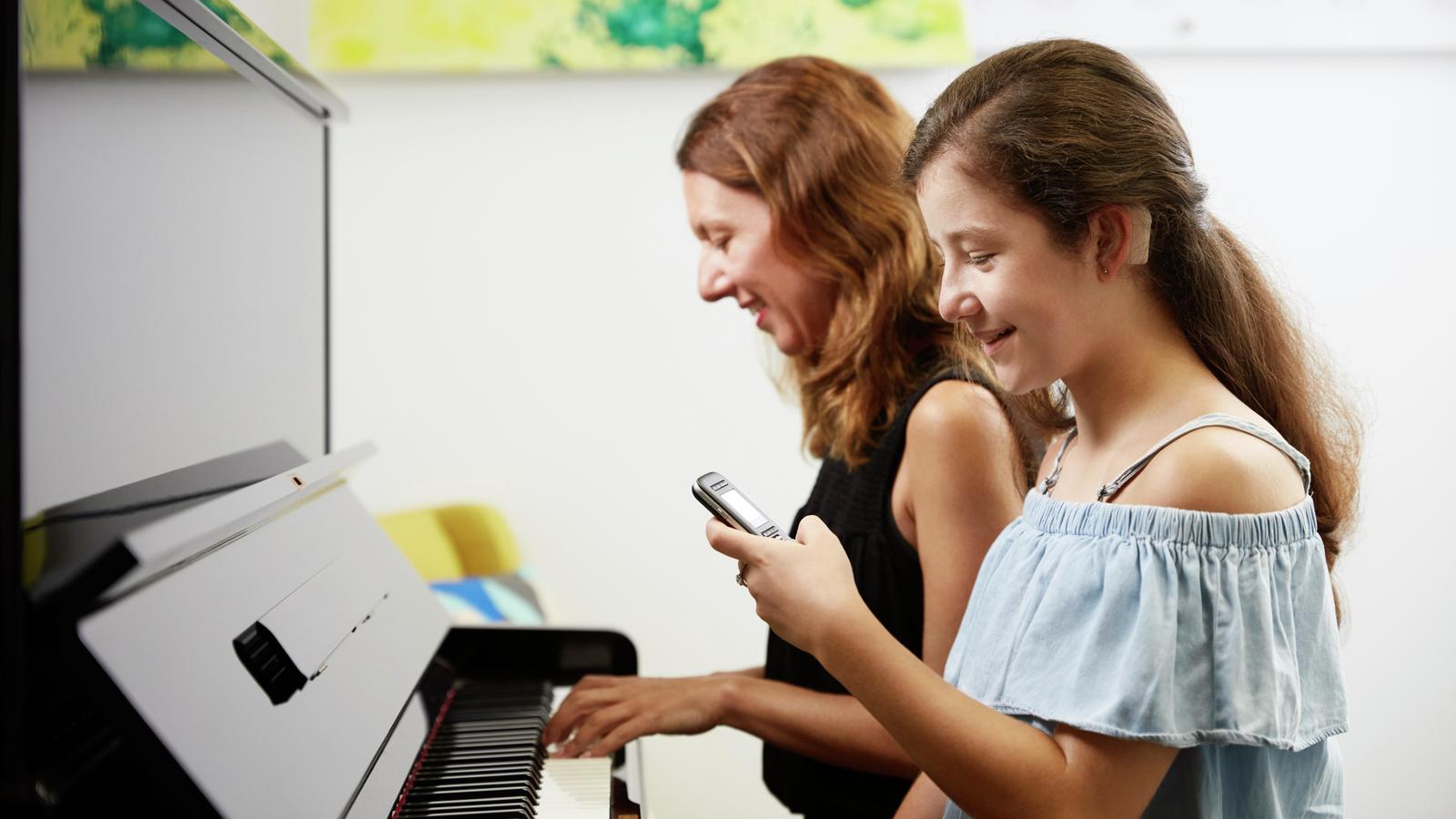
Reconnect with the joy of music
Music is powerful and plays an essential role in people’s lives – from birthdays and weddings to listening to our favorite songs. Here are some tools to help you embrace music in your life.
What you'll find on this page
- Hear from recipients about the tips and tricks that helped them reconnect with music
- Free online games that can help you practice your listening with pitch, rhythm, and more
- Support and rehabilitation resources
Hear from recipients about the tips and tricks that helped them reconnect with music

For Richard Reed, a renowned blues musician and cochlear implant recipient, finding ways to reconnect with music after experiencing hearing loss was crucial. His top tips include:
- Begin with simple music – a plain melody performed on just one or two instruments. Rich, complex sounds are harder to understand.
- Try familiar music initially rather than new pieces. Gradually introduce new but similar music and extend your library slowly. Repeated listening is one of the big keys to success.
- Grab an instrument and start playing. Find a range of notes that you enjoy – there may not be many at first – but it only takes two or three that don’t sound so strange to be on your way.
“Music might not sound the way you remember it, but don’t be disheartened. Take this challenge as your chance to make new favourites, to find music where you don’t expect it,” Richard says. Learn more about Richard’s journey with music appreciation and performance.

A professional musician, Massimo has been performing for many years and has completed formal studies in electric and classical guitar. But when Massimo lost his hearing due to Meniere’s disease, and despite the success of his cochlear implant, he completely lost the ability to correctly pitch music notes or recognise the music he had played for more than 40 years. With practice, he was able to regain his love of music. His number one tip:
Use quality equipment to listen to music. Use a quality stereo player and quality monitors and speakers. Start with very low volumes and reduce the bass frequencies while adding mid tones and treble ones.
“Generally, cochlear implant recipients can be sensitive to loud sound, so very soft melodic music is the answer. The best scenario is to use quality media players, very good speakers and be in control of the mix by reducing low frequencies and incorporating more mid-frequencies and highs.”
Read more about Massimo’s story and his path to playing music again.
These free online games can help you practice your listening with pitch, rhythm, and more
There are many free music games available online and through mobile apps that can help you practice your music listening skills. Some of these games may be designed for children, but don’t let that deter you. As you continue to practice your music listening skills with your cochlear implant, you may be able to progress to more advanced games and quizzes. There are many great music games available out there, and here are a few examples:
Inside the Orchestra |
|
This collection of online musical games can help you develop a wide variety of skills for listening to and understanding music. For example, in the About the Instruments section, you can hear the sounds of various strings, woodwinds, brass and percussion instruments and practice differentiating them. The Percussion Matching game asks you to match the sound of a percussion instrument with its source, while the Highs and Lows game gives you an opportunity to identify whether a sound comes from a high-pitched instrument or a low-pitched instrument. |
The Music Lab |
|
Based jointly at the University of Auckland and Yale University, the Music Lab provides simple music games to help understand the cognitive science of music. Fun and easy games on their website can help you practice your pitch perception, tone of voice for different audiences, and more. |
Music Memory |
|
The Music Memory game is great for practicing your pitch recognition. It plays each of the notes for the scale of Do, Re, Mi, Fa, So, La, Ti. Then, it plays a note and asks you to select the matching one. It also tells you whether you’re right or wrong before moving on to the next sound. There is background music in this game, which makes it more challenging and a better fit once you’ve had some practice with pitch perception already. |
4 top tips to reconnect with music

"One day I was listening to my favourite song and I started crying because I could finally hear the music in it - every instrument that was being played."
Listen, listen and listen againListen to your old favourites over and over – you will be surprised how the sound quality can improve over time. |
Music sounds better with streamingStreaming is a great way to enjoy your tunes by transferring music directly to your sound processor. |
Start with familiar musicStart by choosing music you are familiar with, or simple tunes with a strong beat like children's songs. |
Try different musical stylesRock, rap, ballroom or country music are good options because they rely heavily on a musical beat. |
Disclaimer
Please seek advice from your health professional about treatments for hearing loss. Outcomes may vary, and your health professional will advise you about the factors which could affect your outcome. Always follow the direction for use. Not all products are available in all countries. Please contact your local Cochlear representative for product information.
Views expressed are those of the individual. Consult your health professional to determine if you are a candidate for Cochlear technology. Any testimonial featured on this website is intended for an Australian audience only.
For a full list of Cochlear’s trademarks, please visit our Terms of Use page.



